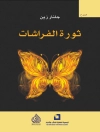Seminar paper from the year 2006 in the subject Didactics for the subject English – Pedagogy, Literature Studies, grade: 1, University of Marburg (Institut für Anglistik/Amerikanistik), course: HS Lexical Semantics, language: English, abstract: Every learner of a foreign language has experienced the problem that very often there is more than one meaning to a lexeme, and one needs a good command of English through experience to chose the right translation in order to avoid mistakes, which might in the worst case lead to a completely different understanding of the meaning that one wanted to convey.
The German lexeme Reise has a variety of meanings in English: travel, journey, trip, voyage, crossing, flight, tour, etc., which makes it difficult for the L2-learner to distinguish between them when in need for a translation. Some are fairly easy to use, but others become confusing, if one looks them up in a dictionary, because their meanings overlap and the boundaries are not clear cut.
So the first aim of this paper is to further compare and research four of the meaning variants of Reise, i.e. the lexemes travel, journey, trip and voyage, in order to establish their distinct usage for the EFL classroom and of course, based on the aforementioned, for practical real world use.
The second aim is to develop adequate methods to teach these findings to pupils in a way that goes beyond strict learning from a book, but puts the given vocabulary into contexts.
Konstantin Seitz
Difficulties in second language acquisition [EPUB ebook]
An analysis of the lexemes travel, journey, trip, voyage with a teaching unit
Difficulties in second language acquisition [EPUB ebook]
An analysis of the lexemes travel, journey, trip, voyage with a teaching unit
Achetez cet ebook et obtenez-en 1 de plus GRATUITEMENT !
Langue Anglais ● Format EPUB ● Pages 33 ● ISBN 9783638823326 ● Taille du fichier 0.5 MB ● Maison d’édition GRIN Verlag ● Lieu München ● Pays DE ● Publié 2007 ● Édition 1 ● Téléchargeable 24 mois ● Devise EUR ● ID 3830643 ● Protection contre la copie sans












